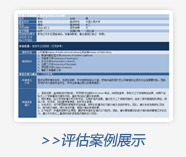Abigail:S改变了我的人生
Abigail因为这篇文书在美国广受关注,她此前在TIKTOK上公开阅读了自己的这篇文书并获得了2000万的点击量。
Abigail的文书的主题内容与大部分文书都相差无几,从一些小的成长故事出发,讲述自己的过往经历,在故事中体现自身的特点,这也是一篇文书应该有的架构。
不同的是,在文书开头,Abigail表示自己因为单词“parents”(父母)而讨厌字母“S”,也因为这个代表复数的“S”,彻底改变了她的人生。
完整文书展示:
I hate the letter “S”. Of the 164,777 words with “S”, I only grapple with one. To condemn an entire letter because of its use 0.0006% of the time sounds statistically absurd, but that one case changed 100% of my life. I used to have two parents, but now I have one, and the “S” in “parents” isn’t going anywhere.
“S” follows me. I can’t get through a day without being reminded that while my friends went out to dinner with their parents, I ate with my parent. As I write this essay, there is a blue line under the word “parent” telling me to check my grammar; even Grammarly assumes that I should have parents, but cancer doesn’t listen to edit suggestions. I won’t claim that my situation is as unique as 1 in 164,777, but it is still an exception to the rule - an outlier. The world isn’t meant for this special case.
The world wouldn’t abandon “S” because of me, so I tried to abandon “S”. I could get away from “S” if I stayed busy; you can’t have dinner with your “parent” (thanks again, Grammarly) if you’re too busy to have family dinner. Any spare time that I had, I filled. I became known as the “busy kid”- the one that everyone always asks, “How do you have time?” Morning meetings, classes, after school meetings, volleyball practice, dance class, rehearsal in Boston, homework, sleep, repeat. Though my specific schedule has changed over time, the busyness has not. I couldn’t fill the loss that “S” left in my life, but I could at least make sure I didn’t have to think about it. There were so many things in my life that I couldn’t control, so I controlled what I could- my schedule. I never succumbed to the stress of potentially over-committing. I thrived. It became a challenge to juggle it all, but I’d soon find a rhythm. But rhythm wasn’t what I wanted. Rhythm may not have an “S”, but “S” sure liked to come by when I was idle. So, I added another ball, and another, and another. Soon I noticed that the same “color” balls kept falling into my hands- theater, academics, politics. I began to want to come into contact with these more and more, so I further narrowed the scope of my color wheel and increased the shades of my primary colors.
Life became easier to juggle, but for the first time, I didn’t add another ball. I found my rhythm, and I embraced it. I stopped running away from a single “S” and began chasing a double “S”- passion. Passion has given me purpose. I was shackled to “S” as I tried to escape the confines of the traditional familial structure. No matter how far I ran, “S” stayed behind me because I kept looking back. I’ve finally learned to move forward instead of away, and it is liberating. “S” got me moving, but it hasn’t kept me going.
I wish I could end here, triumphant and basking in my new inspiration, but life is more convoluted. Motivation is a double edged sword; it keeps me facing forward, but it also keeps me from having to look back. I want to claim that I showed courage in being able to turn from “S”, but I cannot. Motivation is what keeps “S” at bay. I am not perfectly healed, but I am perfect at navigating the best way to heal me. I don’t seek out sadness, so “S” must stay on the sidelines, and until I am completely ready, motivation is more than enough for me.
招生官点评:
Abigail’s essay navigates one of the most delicate sorts of topics in college applications: dealing with personal or family tragedy. Perhaps the most common pitfall is to take a tragic event and effuse it with too much pathos and sense of loss that the narrative fails to reveal much about the author’s own personality other than the loss itself. In short, a “sob story.” However, Abigail’s essay adeptly skirts this by utilizing wit and a framing device using the letter “S” to share a profoundly personal journey in a manner that is engaging and thought-provoking.
Rather than focus purely on the loss of one of her parents to cancer, Abigail reflects on her life and the adjustments she has had to make. It is particularly poignant how she expresses the sense that her life with only one remaining parent seems somehow anomalous, that the constant reminders of the completeness in the familial structures of others haunts her.
What also makes this essay all the more intriguing is how we get a glimpse into her internal life as she learns to cope with the loss. There’s an honesty here as she reveals to the reader her attempts at filling this void in her life by constantly keeping busy. It’s further satisfying to see these attempts at committing to various activities evolve into what she terms a “double S,” or “passion,” as she discovers things that she has become passionate about. Perhaps this essay could have been strengthened further by giving the reader a sense of what those passions might be, as we’re left to speculate based on the activities she had mentioned.
Lastly, we see a sense of realism and maturity in Abigail's closing reflection. It’s easy to end an essay like this with a sense of narrative perfection, but she wisely concedes that “life is more convoluted.” This poignant revelation gives us a window into her continuing struggles, but we are nonetheless left impressed by her growth and candor in this essay.
招生官点评
Abigail的文章探讨了大学申请中最微妙的话题之一:处理个人或家庭意外。我们看到很多悲情与失落的描述,这样的叙述除了失落本身之外,无法揭示作者自身的个性。简言之,这是一个“悲伤的故事”。然而,Abigail的文章巧妙地避开了这一点,将字母“s”贯穿始终,以引人入胜和发人深省的方式分享了一段深刻的个人旅程。
面对意外时,她试图通过不断忙碌来填补生活中的空白。而当她发现自己热衷的事情时,这种忙碌变成了“激情”。最后,我们在Abigail的结尾反思中看到了现实主义和她的成熟。她承认“生活是更复杂的”,但也让我们看到她的成长和坦率。
免费留学评估




